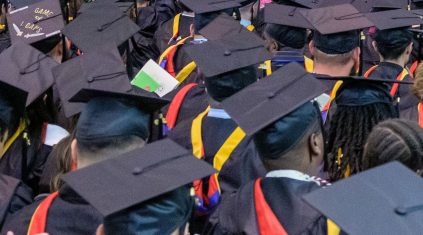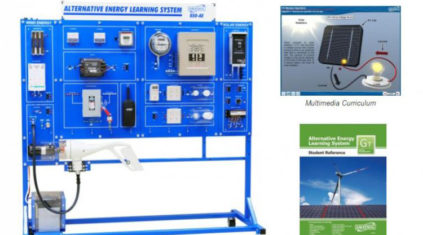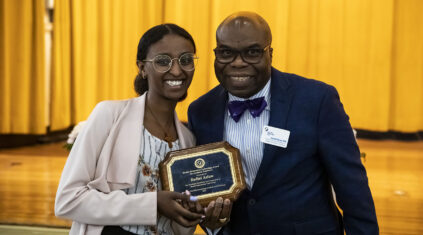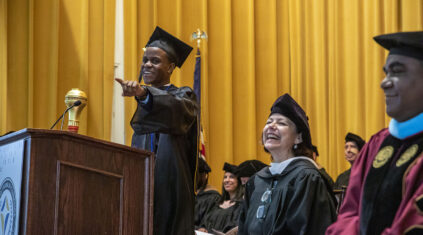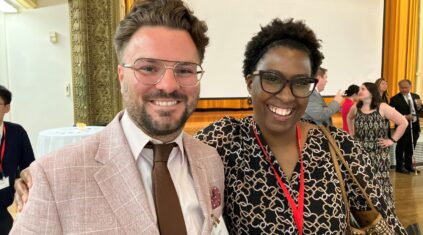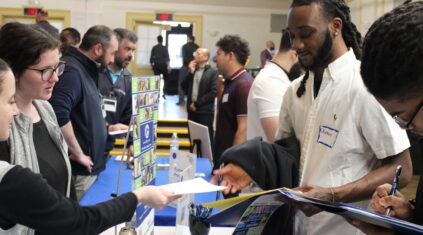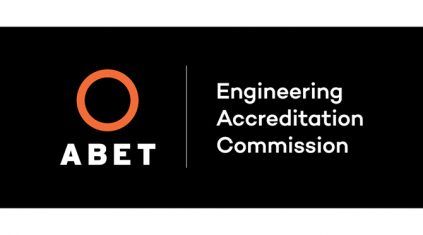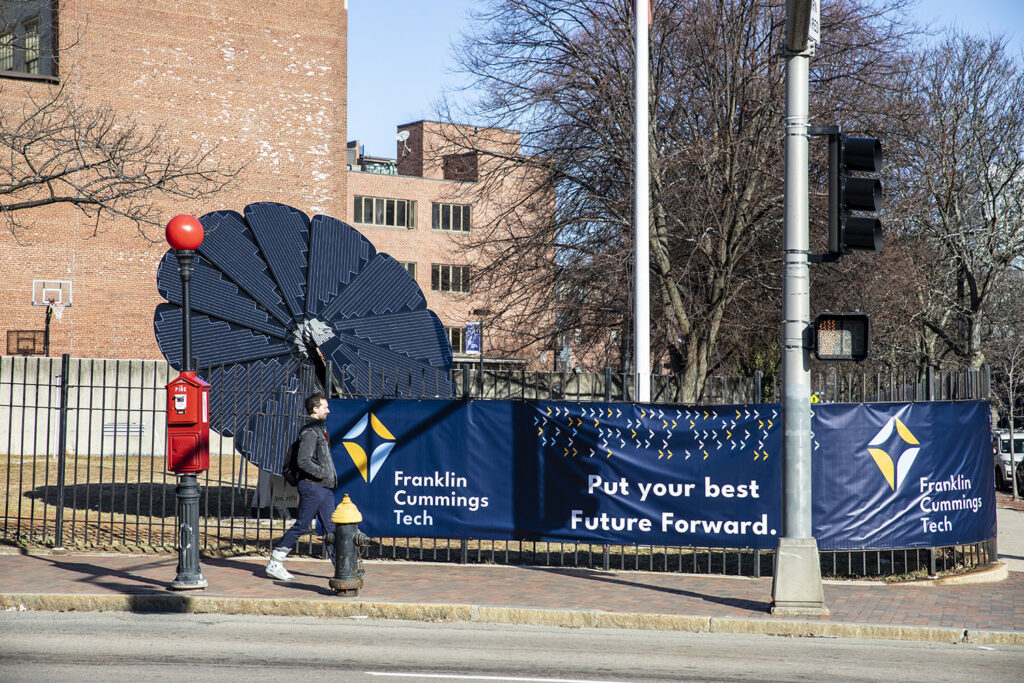
College Expands Clean Tech Education with Launch of Center for Energy Efficiency and the Trades
April 28, 2023
Franklin Cummings Tech formally announced the launch of the Center for Energy Efficiency and the Trades (CEET), bringing a new focus on sustainability and renewable energy across the college’s technical programs. Programs offered through the Center include a concentration in renewable energy that strengthens the pathway to economic security for students and their families by further qualifying them for clean and green tech jobs of the future.
The creation of the CEET was supported by $2.5 million in state funding through the Green Jobs Exploration Grant Programs, as well as funding received through the federal Good Jobs Challenge Grants awarded through the City of Boston’s Office of Workforce Development. It was developed as the college focuses on new, cutting-edge specialization programs that allow Franklin Cummings Tech to significantly increase the number of career-ready graduates prepared to support workforce needs in the growing fields of clean tech, robotics, building automation, life sciences and biotech, renewable energy, and others.
The current associate degree program in Engineering Technology integrated into the Center for Energy Efficiency and the Trades offers concentrations that include Renewable Energy Technology and Building Energy Management. The current associate degree in Automotive Technology now includes a concentration in Electric Vehicle Technology. These affordable, high-quality CEET programs expertly train untapped and diverse talent for high-paying careers in sustainability sectors where hiring demand far exceeds supply, including solar and wind energy technology; electric and autonomous vehicle technology; heat pump technology; green building technology; electric power generation technology; and much more.
“The new Center for Energy Efficiency and the Trades ensures our technical college stays on the cutting edge of the education required to create a qualified and diverse workforce in the growing renewable energy sectors,” said Dr. Aisha Francis, President & CEO of Franklin Cummings Tech. “Our school’s home is in a city that committed to the Green New Deal, with similar pledges happening in municipalities outside of Boston, and that requires a Green New workforce.”
The college has collaborated with industry leaders, including Massachusetts Clean Energy Center, Vineyard Wind, Browning the Green Space, and Boston’s Green Ribbon Commission to connect students with financial and academic resources, internships, and job opportunities across the state.
“It is clear through our connections to industry partners that clean technology and renewable energy is the future of high-paying technical careers across the country,” said Dr. Nikhil Satyala, Executive Director for the Center for Energy Efficiency and the Trades at Franklin Cummings Tech. “It is our goal with this new Center to equip our diverse student population with the skills and expertise to fill the growing workforce needs so they can better their quality of life and build generational wealth, while ensuring Massachusetts leads the nation in creating a diverse and qualified renewable energy workforce.”
According to the Commonwealth Corporation 2022 STEM Week Report, the median annual wage for STEM occupations is $95,420, with employment in the STEM fields expected to grow by 10% by the year 2031. Already, more than 20% of manufacturing careers in Massachusetts are STEM-related jobs, according to the Commonwealth Corporation 2022 STEM Week Report.
The establishment of the Center comes as the technical college plans the construction of a new campus in Nubian Square. The college is leading by example through a new campus building that aligns with the City of Boston’s goal to become carbon-neutral by 2050. The 68,000 square foot facility at 1003-1013 Harrison Ave in Roxbury is not only designed to be a carbon-neutral building but will feature a “rooftop laboratory” where students will study, train, and test on the components of a functioning sustainable building, in alignment with courses in sustainable building designs, environmental systems, clean energy, and green building space.
